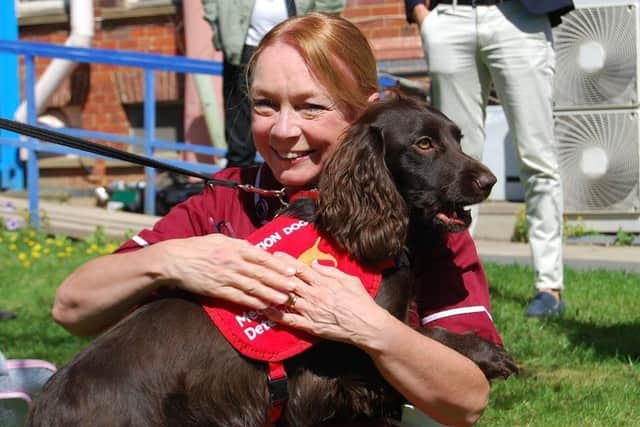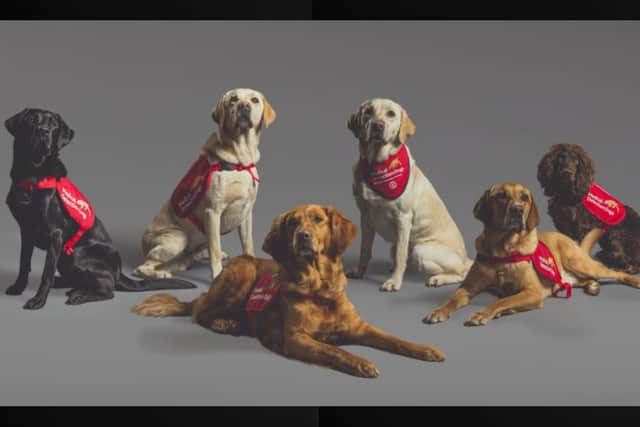Northamptonshire NHS staff create a stink to help dogs sniff out Covid
and live on Freeview channel 276
NHS Hospital staff in Northamptonshire created a bit of a stink to help researchers prove super-sniffer dogs could play a unique role in beating Covid-19
Volunteers provided the scent the virus has a unique smell which studies show can be picked up by dogs with an amazing 94 percent accuracy.
Advertisement
Hide AdAdvertisement
Hide AdThat means one dog could potentially screen a plane-load of passengers jetting off for a sunshine holiday or arriving at major sporting events or concerts without the need for expensive tests.


More than 200 staff at Kettering General Hospital who signed up for the study last year were rewarded by publication of the stunning results which suggests Covid-19 infection has a distinct smell which dogs’ noses can detect with incredible accuracy
KGH’s lead research nurse Joanne Walsh said: “The trial started in July 2020 and for several months we were the lead national contributor to it in terms of the number of staff we encouraged to get involved.
“Our staff wore special masks for three hours, and T-shirts and socks for 12 hours, and were tested for Covid-19.
Advertisement
Hide AdAdvertisement
Hide Ad“The samples were then sent to researchers who could use them to see if the dogs could pick out individuals who had tested positive for Covid.”


Respiratory consultant Dr George Tsaknis was KGH’s lead doctor for the trial.
He said: “It was fantastic. Our research nurses worked really hard to promote the trial and their dedication and encouragement really paid off in terms of how many volunteers we got to take part
“We have managed to get 200 samples from KGH volunteers and every one of those has helped in the national research.
Advertisement
Hide AdAdvertisement
Hide Ad“I want to say a big thank you to every single person who supported the trial including our hard working research team.”
Scientists from the London School of Hygiene & Tropical Medicine published the results in collaboration with the charity Medical Detection Dogs and Durham University.
Project lead Professor James Logan, head of the department of disease control at LSHTM, said: “A huge thank you to all the staff at Kettering General Hospital, and all other NHS staff, who have supported this important piece of national research."